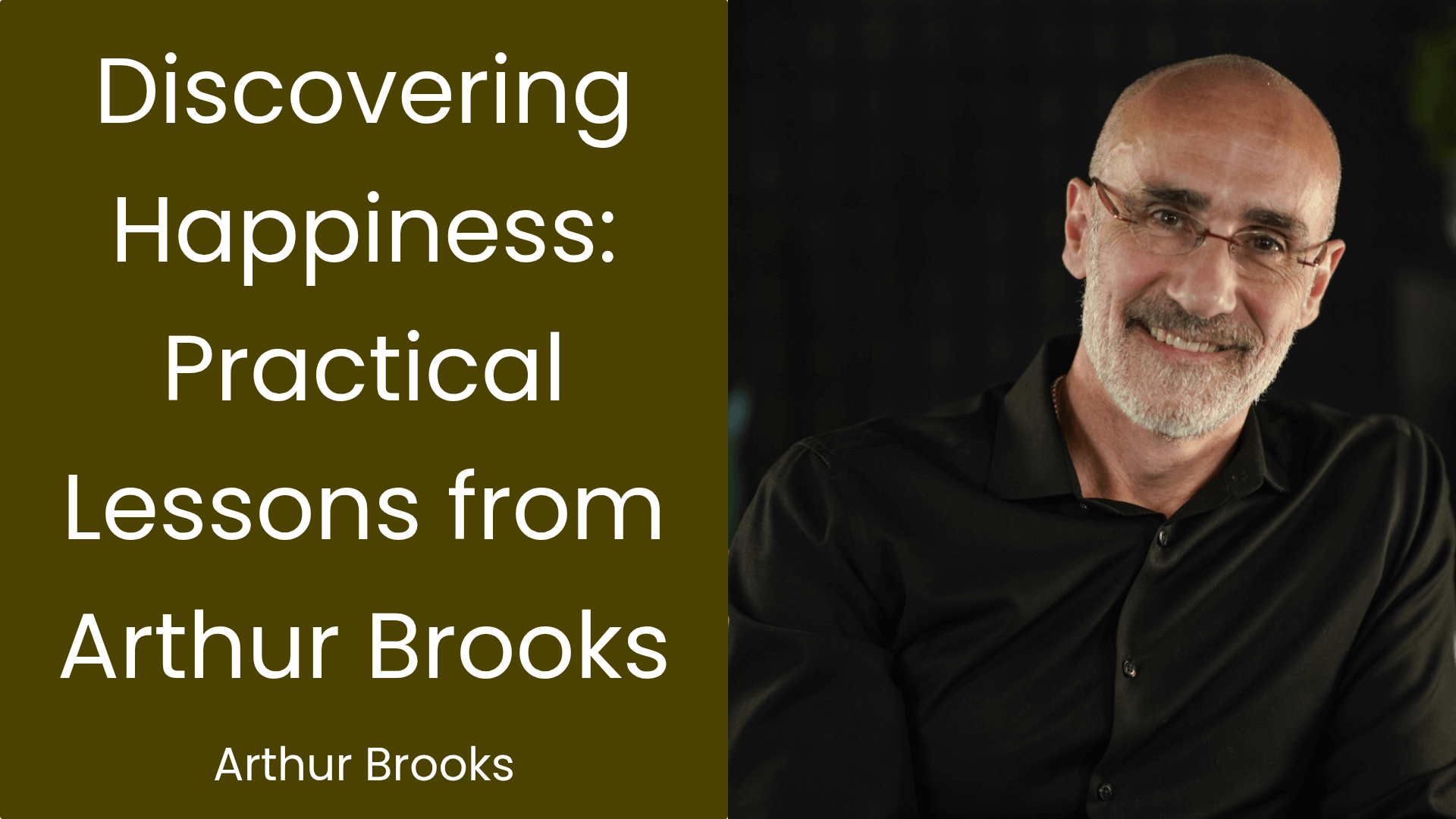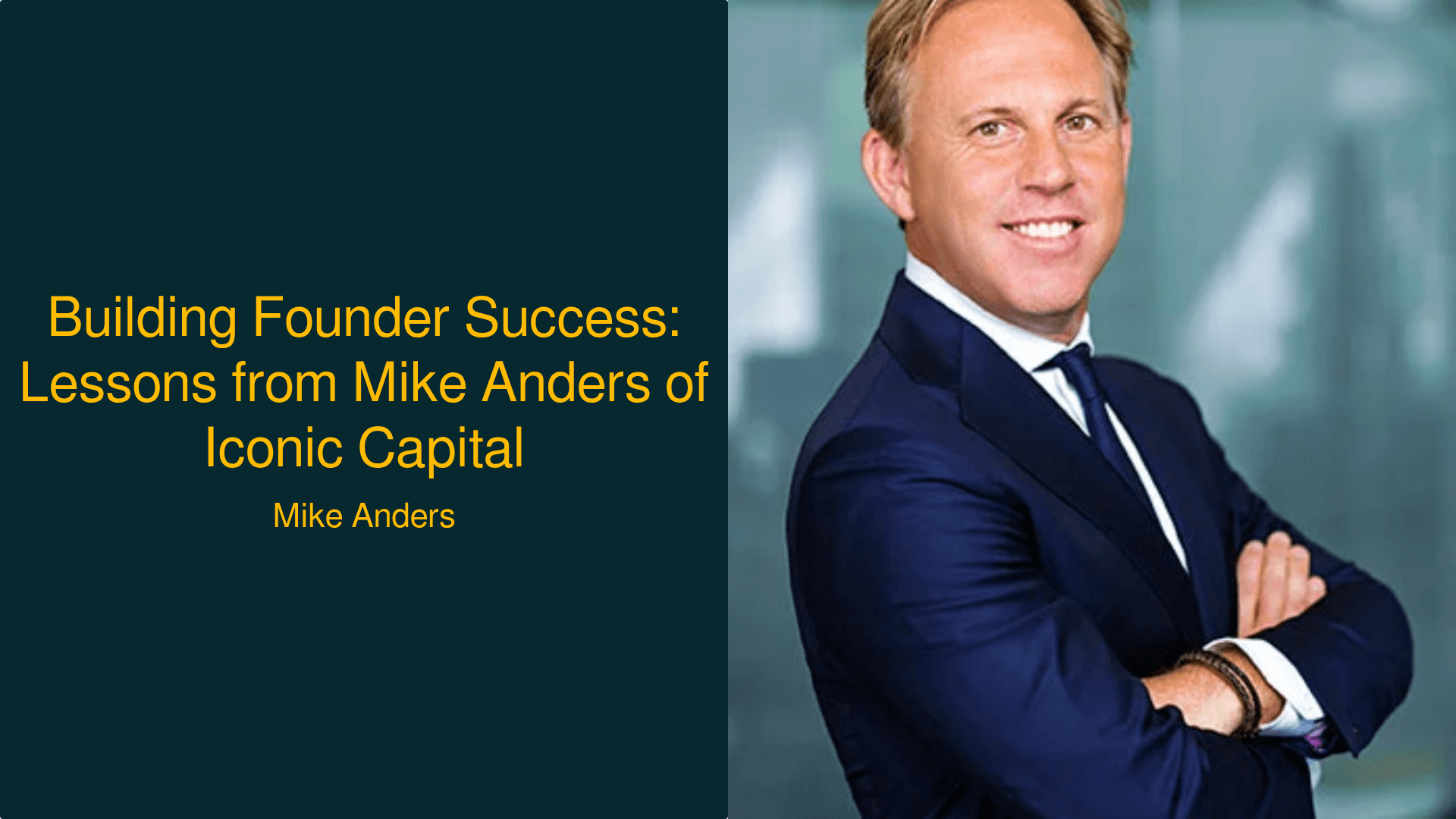Unlocking Founder Success: Insights from Arthur Brooks on Happiness and Purpose
Explore actionable insights from Arthur Brooks on redefining success and finding true happiness in your entrepreneurial journey.

Unlocking Founder Success: Insights from Arthur Brooks on Happiness and Purpose
In the quest for founder success, understanding the true nature of happiness is often overlooked. Arthur Brooks, a Harvard professor and bestselling author, challenges traditional notions of success by emphasizing the importance of happiness as a commitment rather than a fleeting feeling. In this article, we will explore key insights from Brooks’ interview, revealing frameworks and actionable strategies that every entrepreneur can apply to enhance their personal and professional lives. By redefining success through the lens of happiness, founders can cultivate a more fulfilling journey in their entrepreneurial endeavors.
Redefining Happiness: The Core of Founder Success
Happiness is love. If you don’t know what to do, make the decision to love. — Arthur Brooks
Why it matters: Understanding that happiness is not merely a feeling but a commitment to love can transform how founders approach their work. This perspective fosters deeper connections with colleagues, customers, and the community, ultimately leading to more meaningful business outcomes. Research indicates that businesses led by emotionally intelligent leaders who prioritize relationships tend to perform better. For example, companies with a strong culture of appreciation and support report higher employee satisfaction and retention rates.
How to Apply This
- Reflect on your current understanding of happiness and identify any misconceptions.
- Make a conscious decision to prioritize love in your interactions, whether with your team, clients, or community.
- Create a weekly practice where you express appreciation to at least three people in your network.
- Engage in activities that foster connection, such as team-building exercises or community service.
- Regularly reassess your goals and align them with your commitment to love and happiness.
The Reverse Bucket List: A New Approach to Life Goals
Happiness doesn’t come from just serving your animal impulses, doing the things that will make you happier. — Arthur Brooks
Why it matters: Brooks introduces the concept of a reverse bucket list as a tool for entrepreneurs to reassess their priorities. Instead of focusing solely on achievements, reflecting on what truly brings joy and fulfillment can lead to a more balanced and meaningful life. This approach encourages individuals to consider their core values and how they can align their business objectives with personal happiness. Case studies of successful entrepreneurs who prioritize well-being over profit demonstrate that this mindset leads to sustainable growth.
How to Create Your Reverse Bucket List
- List significant experiences in your life that brought you joy and satisfaction.
- Identify the values and lessons learned from each experience.
- Consider how these values can be integrated into your current business practices.
- Set new goals that reflect these values, focusing on what truly matters to you.
- Regularly review and update your reverse bucket list to ensure you stay aligned with your happiness and purpose.
Emotional Self-Management: The Key to Sustained Happiness
The number one thing that sabotages your happiness is the unwillingness or inability to manage your emotions. — Arthur Brooks
Why it matters: Effective emotional management is critical for entrepreneurs facing the highs and lows of business. By developing emotional intelligence and self-awareness, leaders can make better decisions, foster positive workplace cultures, and ultimately achieve greater success. Entrepreneurs who practice emotional regulation can navigate challenges with resilience, leading to improved mental health and business outcomes. Studies show that leaders with high emotional intelligence create teams that are more engaged and productive.
How to Enhance Your Emotional Self-Management
- Practice mindfulness techniques, such as meditation or deep breathing, to enhance self-awareness.
- Keep a journal to reflect on your emotional responses to daily challenges.
- Seek feedback from trusted peers about how your emotions impact your leadership style.
- Develop a set of coping strategies for managing negative emotions, such as stress or frustration.
- Engage in regular self-assessment to identify areas for improvement in emotional regulation.
The Importance of Meaning: Finding Your Purpose
Your life is the startup. The real startup is you incorporated. — Arthur Brooks
Why it matters: Brooks emphasizes that true fulfillment in business comes from aligning personal purpose with professional endeavors. Understanding one’s calling and integrating it into the business model can lead to greater satisfaction and success. Entrepreneurs who identify their purpose are often more motivated and driven, leading to innovative solutions and sustainable practices. Research indicates that purpose-driven organizations outperform their competitors in employee satisfaction and retention.
How to Discover Your Purpose
- Reflect on your passions and what drives you beyond financial success.
- Engage with mentors or coaches who can help you clarify your purpose.
- Participate in workshops or retreats focused on personal and professional development.
- Create a mission statement for your life and business that reflects your core values.
- Regularly revisit and adjust your purpose as you grow and evolve.
Building Connections: The Heart of Entrepreneurial Success
You can live the life that you want, but if your goal is the money, you’ll never be happy. — Arthur Brooks
Why it matters: Brooks argues that fostering connections is essential for happiness and success. By prioritizing relationships over profit, entrepreneurs can create vibrant workplaces and loyal customer bases. Building a strong network of support contributes to resilience and innovation, allowing businesses to thrive even in challenging times. Successful founders often prioritize relationship-building, leading to collaborative environments that drive growth.
How to Strengthen Your Connections
- Identify key relationships in your personal and professional life and assess their current state.
- Schedule regular check-ins with colleagues, mentors, and clients to nurture these connections.
- Engage in active listening and show genuine interest in others’ well-being.
- Participate in networking events to expand your circle and meet new people.
- Cultivate a culture of appreciation within your team by recognizing contributions and celebrating successes.
Conclusion
In conclusion, the insights shared by Arthur Brooks remind us that true founder success lies in the pursuit of happiness, love, and purpose. By redefining our understanding of happiness, embracing emotional self-management, and building meaningful connections, entrepreneurs can create fulfilling and sustainable businesses. As we navigate the challenges of entrepreneurship, let us prioritize our well-being and the well-being of those around us. By doing so, we not only enhance our personal lives but also contribute positively to the entrepreneurial ecosystem. The journey to founder success is intertwined with our commitment to love and happiness—let that be the guiding principle in our endeavors.


